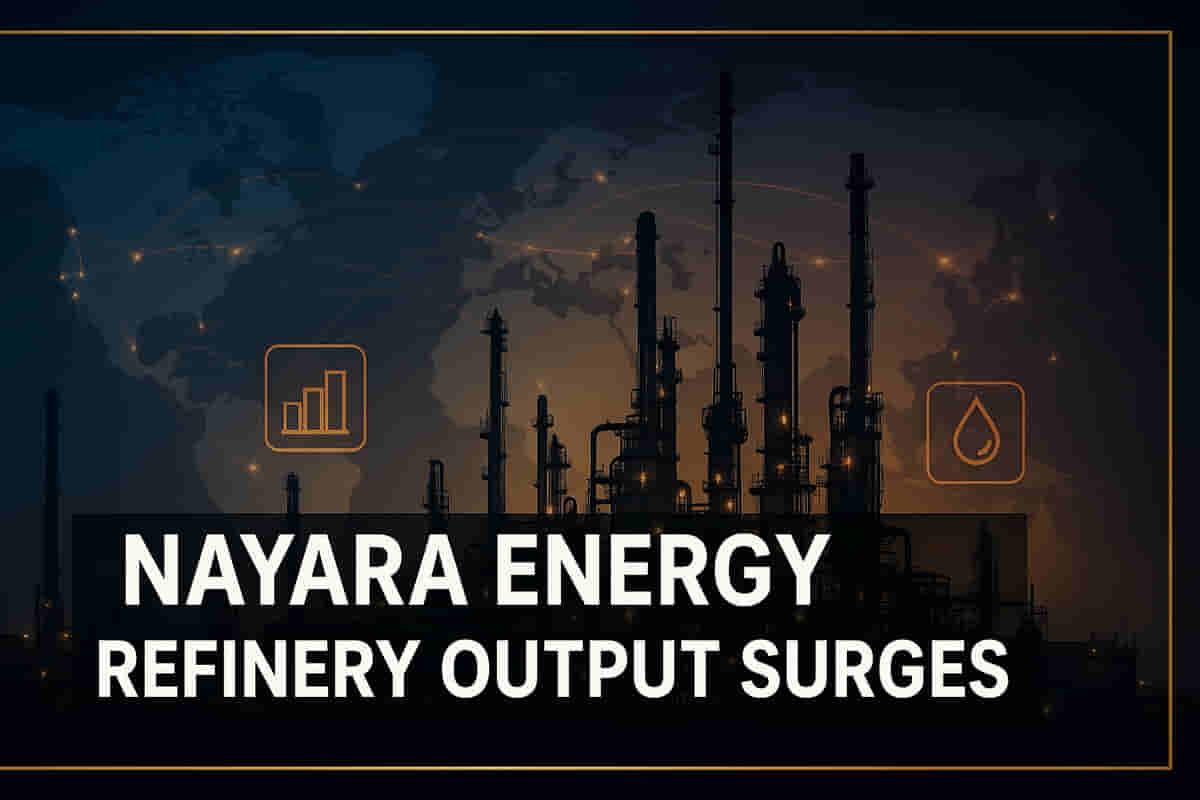Nayara Energy Ramps Up Refinery Operations to 93% Using Russian Crude Amid Sanctions
Energy
|
31st October 2025, 10:26 AM

▶
Short Description :
Detailed Coverage :
Nayara Energy, majority-owned by Russian entities including Rosneft, has significantly boosted its crude processing at the Vadinar refinery in western India. Operations have been ramped up to between 90% and 93% of capacity. This marks a substantial recovery from earlier in the year when European Union sanctions, imposed in July, curtailed operations to between 70% and 80% of capacity. Prior to these sanctions, the refinery was operating above capacity at 104%.
The rebound is attributed to Nayara Energy increasing its domestic fuel sales, including supplies to state-owned Hindustan Petroleum Corporation. Ship tracking data indicates the refinery is now exclusively processing Russian oil, which is arranged by Rosneft and reportedly sold to Nayara through traders. This strategy allows Nayara to circumvent sanctions while securing its feedstock.
This contrasts with the approach of other major Indian refiners like Reliance Industries, which have halted purchases of Russian oil following recent US sanctions on Russian energy companies. However, Indian Oil Corporation, another state-owned refiner, continues to buy Russian oil from non-sanctioned entities.
Impact This news indicates Nayara Energy's operational resilience and its ability to secure necessary crude supplies despite geopolitical challenges. The increased capacity utilization could lead to improved financial performance for Nayara Energy and contribute to India's energy security. It highlights the complex global oil market dynamics and India's strategic approach to energy sourcing. The reliance on Russian oil, facilitated through non-sanctioned channels, could provide a cost advantage, potentially impacting the competitive landscape for other domestic refiners. Rating: 7/10.
Difficult Terms Crude processing: The industrial process of refining crude oil into various petroleum products like gasoline, diesel, and jet fuel. Barrels per day (bpd): A standard unit for measuring oil volume, equal to 42 US gallons. It denotes the rate of oil production or flow. EU sanctions: Restrictions imposed by the European Union on countries, entities, or individuals, typically affecting trade, finance, and travel. Rosneft: A Russian state-owned oil company, one of the world's largest oil producers, facing international sanctions. Hindustan Petroleum Corp Ltd (HPCL): An Indian state-owned oil and gas company involved in refining, marketing, and distribution. Reliance Industries Limited (RIL): A major Indian multinational conglomerate with significant interests in energy, petrochemicals, and retail. Indian Oil Corp Ltd (IOCL): India's largest commercial enterprise, a state-owned oil and gas company. Lukoil: A Russian multinational energy corporation involved in oil and gas exploration, production, and refining. Traders: Individuals or companies that buy and sell commodities, financial instruments, or currencies, acting as intermediaries. Ship tracking data: Information collected from GPS and other tracking systems on vessels to monitor their movements and status. Retail fuel outlets: Service stations where fuel is sold to end consumers. Capacity utilization: The extent to which a factory or plant operates relative to its maximum potential output.